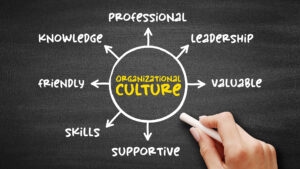In today’s dynamic and disruptive business environment, having the correct abilities and skills is crucial for the future success of organizations. Performance starts at the individual level and progresses to the team level before reaching the highest leadership levels.
When today’s employees are groomed to become tomorrow’s leaders, organizations are well-guided to move towards their goals. To ensure consistent development of the right abilities and skills, companies must invest in accurate leadership coaching training programs.
Coaching and Mentoring – How these impact Leadership Development?
Leadership development means acquiring the right skills to effectively lead others. Almost one-third of employees quit their jobs within the first quarter due to poor leadership. Therefore, business leaders must acquire these abilities to attract and retain talent in a competitive environment. Additionally, effective leadership helps companies stand out from their competitors, improve profitability, maximize business plans, and bring efficient changes.
Developing leaders is a cross-cultural activity that is not reserved only for the top management. The digital era is eliminating hierarchical silos and mid-level managers are being groomed for higher leadership roles.
Managers are expected to support their people, resolve conflicts, boost motivation and employee engagement, and move towards achieving organizational goals. Coaching and mentoring are increasingly used to develop leaders within the organizations.
What is Coaching?
A formal one-to-one connection between the coach and a participant is known as coaching. A corporate coaching program helps participants develop strategic skills to improve their performance. Coaching ensures the objectives are clear and definite and encourages the participant to move towards the goals. It is an intensive process wherein the coach focuses on the experience of the participant and helps them to recognize their strengths and weaknesses and find their future direction.
What is Mentoring?
It is a more casual open-ended discussion where the mentor encourages growth. Mentoring focuses on a wider range of leadership skills developed over several years instead of concentrating on specific gaps. Mentoring can be of several types:
Traditional method
A seasoned mentor works with the mentee and offers advice, assistance, and support. The former helps the latter develop new skills and increase their network to succeed in their careers by being their advisor, role model, and sounding board.
Peer mentoring
Peers with comparable experience and knowledge work together as mentors and mentees. This method encourages belongingness and teamwork while being an excellent way to network and acquire new skills.
Difference between Coaching and Mentoring
The two may be related and overlapping. Coaching and mentoring may be offered by the same individual. However, there are some differences between the two and it is important to understand these differences.
Coaching often focuses on improving performance in the current role by helping the participant resolve an existing issue or stumbling block. Organizations often work with the top executive coaching firm to help individuals become more self-aware by offering challenges and support.
Mentoring generally focuses on moving ahead in the career path. Instead of focusing on resolving an existing challenge, mentoring helps the mentee improve their capabilities and acquire new skills. Mentors may advise and guide their mentees on potential issues that may not exist now but may arise in the future. They leverage their experience and expertise for knowledge transfer and networking. They may also sponsor the mentees to encourage development experiences, advocate promotions, and study the environment to identify potential threats and opportunities.
Creating a Coaching and Mentoring Culture
A coaching and mentoring culture encourages constructive feedback and open conversations to increase agreement, alignment, and collaboration. Often people in their early careers are hesitant to speak up and when organizational culture encourages conversations and values the perspectives and thoughts of all employees, it significantly enhances the culture.
Leaders must ensure they do not promote their agendas while listening to their colleagues. They must listen with an open mind to facts, feelings, and values. Conversations must be used to discover new insights by making inquiries that stretch their thinking and encourage out-of-the-box solutions. It is important to strike the right balance between challenge and support to uncover unexamined assumptions.
Give the leaders the support required to reach their potential and move ahead in their careers with coaching and mentoring programs from the best leadership coaching companies. CoachMantra is a leading brand with a stellar team of coaches and mentors with high qualifications and unmatched industry experience. The company has a unique approach built on the best practices from across the globe and includes insightful self-analysis and mastery to create a sustainable impact.





